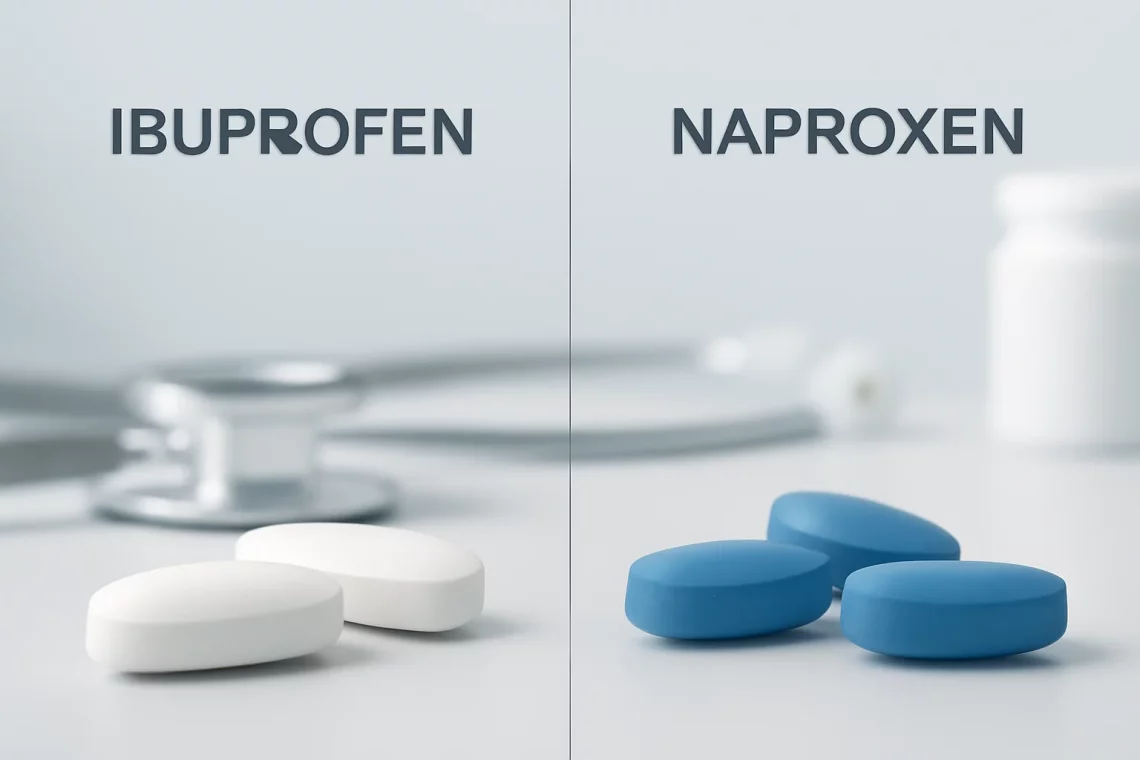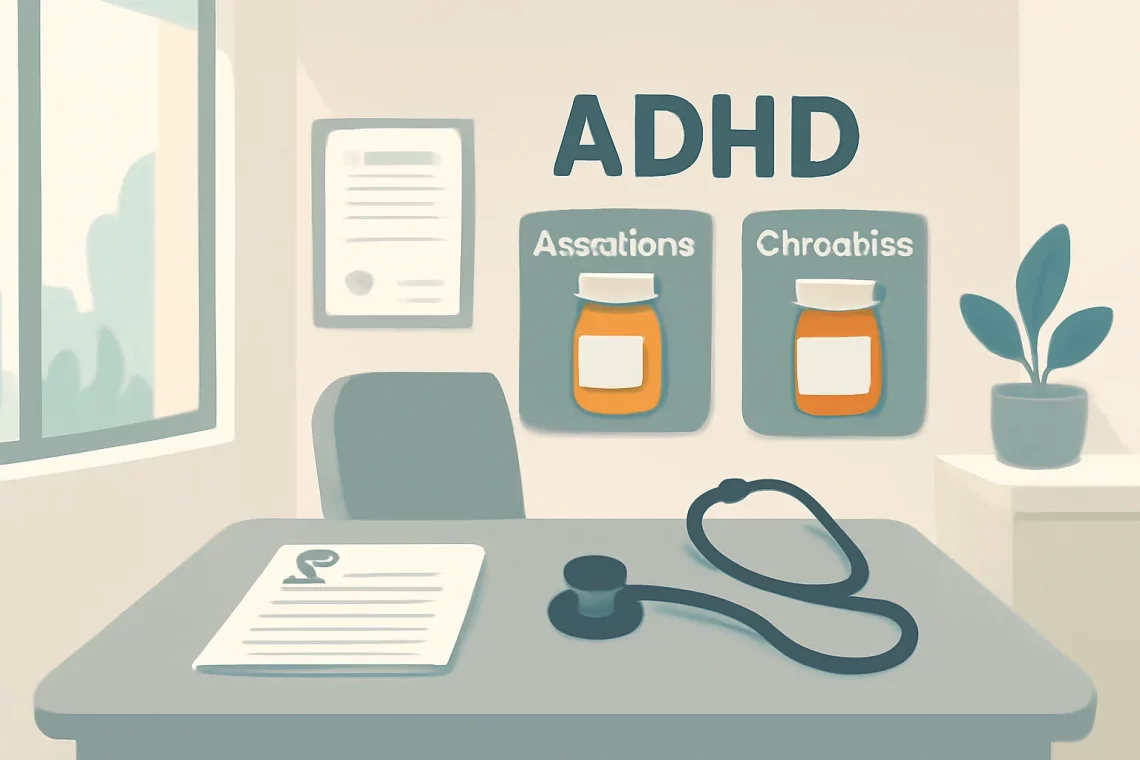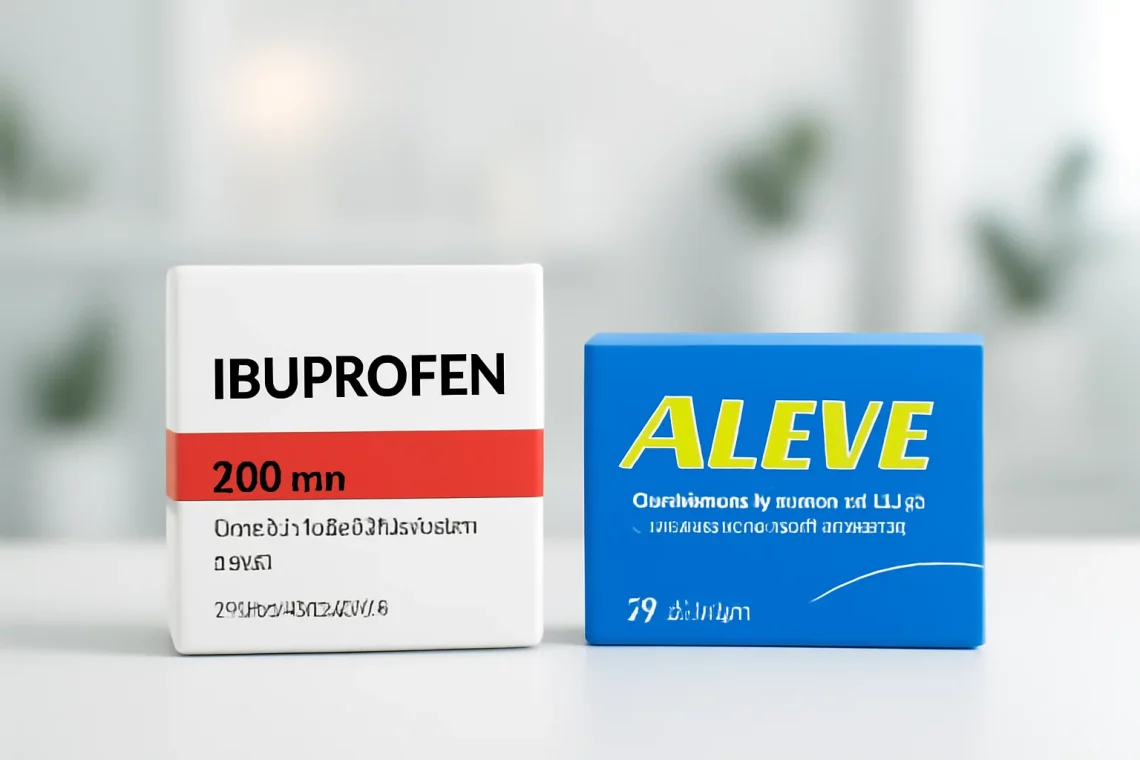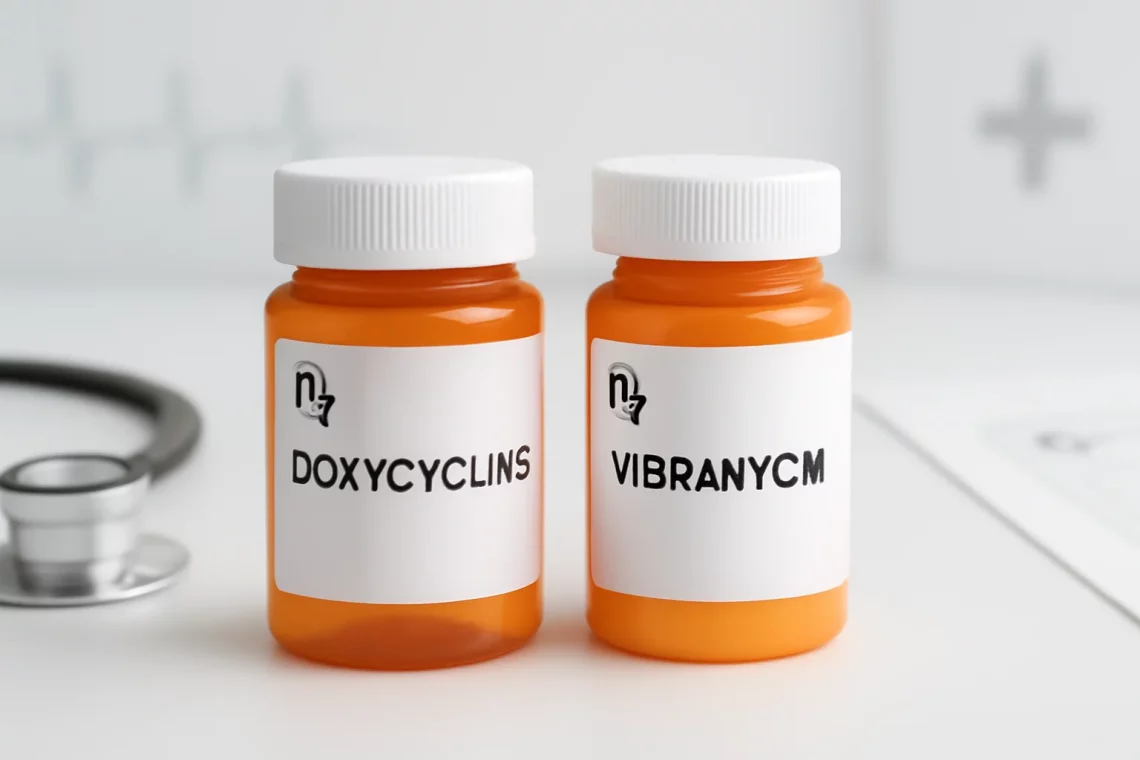-
Doxycycline vs Minocycline: Which Antibiotic is Right for You?
Doxycycline and minocycline are both antibiotics belonging to the tetracycline class, commonly prescribed for various bacterial infections. While they share similar mechanisms of action and therapeutic uses, each has unique properties that can influence their effectiveness, side effects, and suitability for different patient populations. Understanding the distinctions between these two medications is essential for healthcare providers, patients, and anyone interested in antibiotic treatment options. As antibiotic resistance continues to rise, knowing the most appropriate antibiotic for specific conditions is crucial. Factors such as the type of infection, individual patient response, and potential side effects can all play significant roles in determining whether doxycycline or minocycline is the better choice. This…
-
Ibuprofen vs Naproxen: Which Pain Reliever is Right for You?
Ibuprofen and Naproxen are two of the most commonly used nonsteroidal anti-inflammatory drugs (NSAIDs) available today. Both medications are widely utilized for their effectiveness in alleviating pain, reducing inflammation, and lowering fever. They are often recommended for various conditions, including headaches, muscle aches, arthritis, and menstrual cramps. However, despite their similarities, Ibuprofen and Naproxen have distinct characteristics that make them suitable for different situations and patient needs. Understanding how these medications work, their potential side effects, and their differences can help individuals make informed choices about pain management. While some may find one drug more effective than the other, the choice between Ibuprofen and Naproxen may depend on various factors,…
-
Guanfacine vs Clonidine: Choosing the Right Medication for ADHD
Guanfacine and clonidine are both medications that belong to a class known as alpha-2 adrenergic agonists. They are primarily used to treat attention deficit hyperactivity disorder (ADHD) and hypertension, but they have gained attention for their potential benefits in various other conditions. As the medical community continues to explore their pharmacological profiles, patients and healthcare professionals alike seek to understand the nuances of each medication. Both guanfacine and clonidine work by affecting certain receptors in the brain, leading to a decrease in sympathetic nervous system activity. This can result in lowered heart rate and blood pressure, as well as improvements in attention and impulse control. However, despite their similarities, these…
-
Ibuprofen vs Aleve: Which Pain Reliever is Right for You?
In the realm of over-the-counter pain relief, two names frequently rise to the forefront: Ibuprofen and Aleve. Both medications are popular choices for alleviating pain, reducing inflammation, and managing fever. However, despite their similar applications, they belong to different classes of nonsteroidal anti-inflammatory drugs (NSAIDs), which can lead to variations in their effectiveness, side effects, and duration of action. Understanding the differences between these two medications is crucial for making informed decisions regarding pain management. Ibuprofen is a non-selective NSAID that works by inhibiting certain enzymes involved in the inflammatory process, while Aleve, which contains naproxen, has a longer duration of action and may be preferred for chronic conditions. As…
-
Vraylar vs Saphris: A Comprehensive Comparison of Two Antipsychotics
Vraylar and Saphris are two medications commonly prescribed for the treatment of mental health disorders, particularly those within the spectrum of schizophrenia and bipolar disorder. Mental health challenges are complex and multifaceted, often requiring a personalized approach to treatment. As more individuals seek effective solutions, understanding the available options becomes crucial. Both Vraylar and Saphris belong to a class of medications known as atypical antipsychotics. These drugs have been developed to address symptoms associated with severe mental health conditions while aiming to minimize side effects often associated with traditional antipsychotics. Patients and healthcare providers alike must consider various factors when choosing a treatment plan, including efficacy, side effects, and individual…
-
Adderall vs Vyvanse Which ADHD Medication Is Right for You
Adderall and Vyvanse are two of the most commonly prescribed medications for Attention Deficit Hyperactivity Disorder (ADHD). Both drugs are stimulants that affect chemicals in the brain and nerves that contribute to hyperactivity and impulse control. However, despite their similar purposes, they have distinct differences in formulation, duration of action, and side effects, making them suitable for different patients depending on their specific needs. Understanding these differences is crucial for individuals diagnosed with ADHD and their families, as it can impact treatment outcomes significantly. As the prevalence of ADHD continues to rise, so does the importance of finding the right medication. Patients often find themselves faced with the decision of…
-
Meloxicam vs Motrin: Which Pain Reliever Is Right for You?
Meloxicam and Motrin are both non-steroidal anti-inflammatory drugs (NSAIDs) commonly used to relieve pain and reduce inflammation. While both medications serve similar purposes, they differ in their chemical composition, mechanisms of action, and specific uses. Understanding the distinctions between these two medications can empower patients to make informed decisions about their pain management strategies. Pain is a universal experience, and effective treatment is essential for maintaining quality of life. Whether it arises from chronic conditions like arthritis or acute injuries, finding the right medication can significantly impact how individuals manage their symptoms. Patients often seek alternatives to traditional painkillers due to concerns about side effects and long-term use. As a…
-
Doxycycline vs Vibramycin: Key Differences and Uses Explained
Doxycycline and Vibramycin are two commonly prescribed antibiotics belonging to the tetracycline class. Both medications are utilized for their effectiveness in treating various bacterial infections, but they also have unique properties and indications that set them apart. Understanding the differences and similarities between these two drugs is crucial for patients and healthcare providers alike. Doxycycline is often favored for its broad-spectrum activity, making it suitable for a wide array of infections, including respiratory tract infections, urinary tract infections, and some sexually transmitted infections. Vibramycin, on the other hand, is essentially a brand name for doxycycline, indicating that it is the same active ingredient but distributed under a different label. This…
-
Minocycline vs Doxycycline: Choosing the Right Antibiotic for You
Minocycline and doxycycline are two commonly prescribed antibiotics belonging to the tetracycline class. They are both effective in treating a variety of bacterial infections; however, they have distinct properties, uses, and side effects that can influence a healthcare provider’s choice of treatment. Understanding the nuances between these two medications can be crucial for patients when discussing treatment options with their healthcare providers. While both minocycline and doxycycline work by inhibiting bacterial protein synthesis, their pharmacokinetics and specific applications can differ significantly. Factors such as the type of infection, patient history, and potential drug interactions play a vital role in determining which antibiotic may be the more appropriate choice. As antibiotic…
-
Escitalopram vs Fluoxetine: Which Antidepressant Is Right for You?
Escitalopram and fluoxetine are two widely prescribed selective serotonin reuptake inhibitors (SSRIs) used primarily to treat depression and anxiety disorders. Both medications have gained popularity due to their efficacy and generally favorable side effect profiles compared to older antidepressants. The choice between these two drugs often hinges on various factors, including the specific diagnosis, individual patient history, and potential side effects. With mental health issues on the rise globally, understanding the nuances of these medications is becoming increasingly important for both healthcare providers and patients alike. As patients seek effective treatment options, it’s essential to consider not only the mechanisms of action but also the differences in efficacy, side effects,…







































